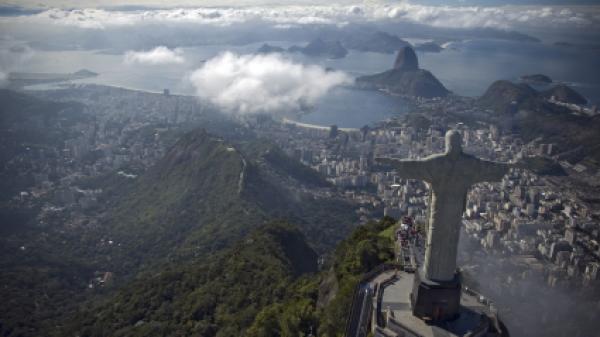Brazil Abolishes Its Fourth Time Zone in 2008
Brazil has abolished its fourth time zone, which means that people living southwest of the Amazon rainforest region and other areas are four hours behind Coordinated Universal Time (UTC).

Brazil now has three time zones instead of four.
©iStockphoto.com/Niko Vujevic
Brazil has recently abolished one of its four time zones. This means that people living southwest of the Amazon rainforest region and other local areas are four hours instead five hours behind Coordinated Universal Time (UTC).
Three Time Zones from June 24 Onwards
People in areas such as the state of Acre, in the southwest of the Amazon rainforest region, and of the state of Amazonas have moved their clocks forward by one hour on midnight between June 23 and June 24 in 2008. There were 46 municipalities that joined states in Brazil’s northern and mid-western regions in being four hours behind UTC. The affected regions have now been absorbed into one of the country’s three remaining time zones.
This event follows a recent change in the time zone regulations (Law No. 11,662) by the Brazilian Government in April 2008. As a result of the change, Brazil now has three time zones, decreed by President Luiz Inácio Lula da Silva:
- The first time zone, which is two hours behind UTC, comprises areas such as the archipelago of Fernando de Noronha.
- The second time zone, which is three hours behind UTC, comprises areas such as the entire coast of Brazil, the Federal District and the interior (except Mato Grosso and Amazonas).
- The third time zone, which is four hours behind UTC, comprises the states of Mato Grosso, Mato Grosso do Sul, Amazonas, Rondonia, Roraima and Acre.
One of the major reasons behind the move to abolish the fourth time zone was to improve broadcast timing issues faced by television networks, which broadcast programs with specific viewer classifications throughout the country over the different time zones. The aim was to create greater unity and stability across time zones.
However, according to a government official in the state of Acre (cited in Agência Brasil), many people in the state opposed the new time zone change and were confused by it. The official said people did now know what the change was about and were unsure if they were supposed to turn the clock one hour forward or back. Still, there were those living in Acre who said that the change would be positive, particularly with regard to television program schedules.
Brief Daylight Saving History
Daylight saving time in Brazil was adopted in 1931 and was applied to the entire nation until 1988 when it was scaled back to apply to only parts of the country. Due to Brazil’s large geographic size, it was split into four time zones. While most of the nation was two, three or four hours behind UTC, most of the western states such as Acre were four hours behind.
Although Brazil observes daylight saving time, the start and end dates may change over time and are not necessarily followed by all states. States that observe the daylight saving schedule may also change from year to year. As daylight saving time affects time zones, the time differences between cities in Brazil vary as the clocks move forward and back during the year. In late April 2008 the country’s president sanctioned a law to approve of abolishing the country’s fourth time zone.
Brazil recently announced its daylight saving schedule for 2008–2009.